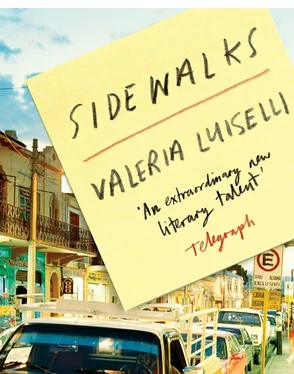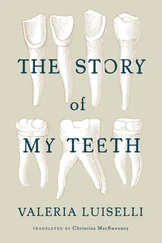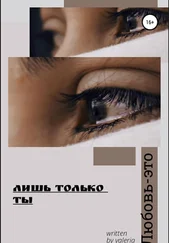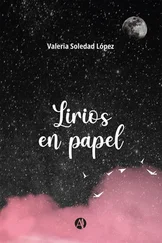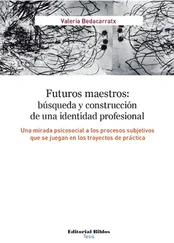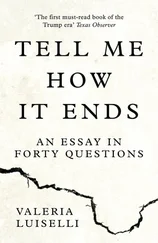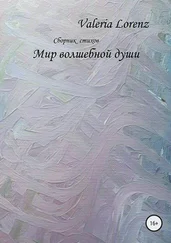Achille Beccari (1860–1893)
When people gifted with at least a little intelligence repeatedly think about the problems of identity, life, or death, sooner or later they’re likely to arrive at reasonable, even original conclusions. I’ve never been able to spend very much time mulling over such topics: I get distracted after a couple minutes, odd places in my body start to itch. And so I’ve never arrived at any truly interesting conclusion about myself.
Although it might seem paradoxical, growing up in a family of liberal-minded atheists, committed but never militant, tends to have devastating consequences. Being raised without a rigid backdrop of religious, political, or spiritual beliefs makes it hard to have a real crisis later in life. There is no way forward if your point of departure is the comfortable passivity of someone who has been a self-professed agnostic since the age of twelve, without ever having considered those important — one might say grave — matters, such as God, death, love, failure, or fear. For a precocious agnostic, the virtues offered by skepticism become terrifying hands that strangle and suffocate the already rare capacity of an individual to question things. Conversely, intelligent people who grow up thinking one thing and, on reaching a certain age, realize that everything they believed is open to doubt — stark, brutal doubt — can truly enjoy a profound crisis that, in the worst cases, leads them to know themselves a little better. As T. S. Eliot contends, the spirit of belief is impossible to separate from the demon of doubt.
Sergei Diaghilev (1872–1929)
Unfortunately for me, I never had any major crises. And I had even fewer qualms about assuming a national identity. Although we almost never had a fixed residence anywhere and, thanks to a nonno from Lombardy, my family and I have Italian nationality, I always knew that Mexico was my country. This was not through some authentic act of faith, but rather a sort of spiritual laziness. In contrast to many of my contemporaries, in my childhood I was even dressed up in the traditional Mexican china poblana costume for the Independence Day celebrations on September 15 and I put up no resistance nor displayed the least sign of rebellion (if I had a child like that, without a trace of rebellious spirit, I’d be worried). From my infancy, I accepted the whole ethno-cultural package of Mexicanness, as others accept baby food.
My only crisis lasted fifteen or twenty minutes one summer afternoon on the Periférico, Mexico City’s — formerly orbital — expressway. At the Altavista exit, there’s a small, scrubby garden in the shape of a lozenge — a piece of land that may have been left over or was perhaps simply missing when they finished mapping out the junction of the access road with the avenue leading to the San Ángel flower market. A few years earlier, for some reason I’m not aware of, my father had managed to persuade someone to donate three palm trees and a bit of grass to beautify this neglected, leftover corner, this relingo. When the restoration of the garden had been completed, my father declared — in a private act of paternal love that, had it been public, would have been a very Mexican gesture of tremendously cringeworthy nepotism — that each of the trees was to be named after one of his three daughters. Time passed and one Sunday he finally convinced us to go with him to visit the spot. When we arrived, he lined us up on the sidewalk of the access road and said: Look, girls, give me your hands (when he gets emotional, my father asks us to give him our hands). Here are the three of you — Daniela, Mariana, Valeria — heroic palm trees growing, undaunted, in this asphalt desert, this shadowy underworld of the elevated section of the Periférico.
But there weren’t three. The smallest palm wasn’t there. Perhaps they’d been lying to me all along and, in fact, there had only been enough money for two — though my father still swears there were three: he says he has a precise memory of it and wouldn’t lie about something like that. Granted. If, then, it wasn’t a lie, and I assigned some kind of symbolic value to the fact that my palm was no longer there, I knew I should be worried about my future. If my palm tree hadn’t taken root, I would never put down roots in Mexico City — that vast asphalt relingo left over or simply missing from the country.
Enea Lombardi (1902–1943)
During the years between that trivial crisis and my first night in Venice, I believed in the kitsch notion that literature could be like a great house, a territory without frontiers that offers shelter to those of us who don’t know how to inhabit any particular place — those of us who prefer to live “Anywhere out of the World,” as Baudelaire called that poem in which he writes that “This life is a hospital where every patient is possessed with the desire to change beds.” It’s a mystery to me what inner mechanisms make us capable of convincing ourselves that certain metaphors — which some people use lightly, just to illustrate their point or decorate their poems — are applicable to our own lives. Nothing was further from the truth, in my life at least, than the metaphor of literature as a habitable place or permanent dwelling. At best, the books I read were much like certain hotel rooms into which we enter, exhausted, at midnight and from which we are expelled at midday — or vice versa, as had happened to me on this occasion in Venice.
The thought of dying on a bench reading Brodsky was romantic. But books don’t give us a mattress to sleep on, a shower with hot water, or relief from real pain. After thinking things over a little, I decided to phone the only person I knew on the island.
Roberta Mazzini (1842–1899)
Amerigo and I hadn’t seen each other for many years. But you’re welcome to stay with me, he said, just walk toward the fish’s tail, ask for Calle Vecchia, and you’ll be here before you know it. Have you got a map? Yes, I said, and as soon as I’d hung up I began to sleepwalk my way between the suffocating walls of the city, with no idea of where I was going. For a while, I simply followed an elderly English couple, my personal Virgils, who were complaining bitterly because someone had drawn graffiti on one of those walls.
I got lost — again. I had to call Amerigo — again — from another public telephone. If you don’t come and fetch me this instant, I said, I’m going to die — I’m outside the Hotel Escandinavia. I must have sounded very bad, because in a few minutes — Arrivo subito — Amerigo appeared from an alley.
As we began walking toward his house, I asked him about the possibility of seeing a doctor immediately. You’re still a hypochondriac, Luiselli, you don’t look all that ill. He explained that private physicians in Venice were for wealthy tourists and cost a fortune, so the next day we’d put my Italian passport to good use and register me as a resident of the Commune of Venice. Then, we’d organize a medical card and — finally — I could visit Dottor Stefano, his general practitioner on the southeast tip of the island (the fish’s tail). I tried to explain that those things took months, and insisted the pain was unbearable and I was at death’s door. But he replied with a “Never lose hope, Luiselli,” and said this in such a thoroughly Venetian, operatic tone, that I was forced into silence.
The next day I went to the civil registry office with Amerigo. There was no queue and in ten minutes I was given a tax code. Then, we visited an office where we were declared to be living in legal cohabitation — coppia di fatto, they say — so that I could be assigned a postal address. There was no one in that office either, except for three female bureaucrats reading the newspaper. The one who attended us congratulated us on our newly acquired status as a couple and, after stamping two or three forms, said to me: Adesso, sei veneziana. I was still digesting the fact that the kind signora had just told me I was now a Venetian when we arrived at the Ministry of Health, where it took two minutes to get me a medical card. So, in a matter of a couple of hours, I became a part of the Italian tax system, got myself a husband, an address in Venice, and a doctor. And not only that, but I was able to witness an invisible city, probably in danger of extinction: the empty, damp, silent Venice of government offices. If there’s still a Venice worth seeing, it’s in those bureaucratic paradises. Sometime in the late afternoon, I sank into the arms of Dottor Stefano, who cured me with a little yellow pill.
Читать дальше
